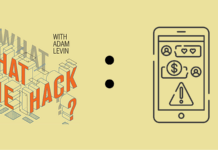The holidays are the most wonderful time of the year, especially for scammers. Consumers are typically spending more, doing it quickly and not paying as much attention to who they’re buying it from because of the rush.
With the COVID-19 pandemic, many shoppers will make the bulk of their purchases online, which means this year’s Black Friday and Cyber Monday shopping frenzy could be riskier than usual.
According to the Better Business Bureau, 37.9% of all reports to the BBB Scam Tracker “were online purchase scams, up from 24.3% in 2019.” On top of that, 80.5% of those consumers lost money due to those scams, up from 71.2% in 2015 when BBB began collecting data.
A BBB survey conducted in August found that the majority of these scammed consumers made purchases for which they never received products.
“Of those who lost money to an online purchase scam, 73% paid for a product and/or service and never received it. Others who fell for this scam type received an item different than the one that was promoted and could not get a refund (15%), had their credit card information stolen (1%), and reported other issues (11%) such as overcharges, extra fees, ‘free’ trial offers, recurring charges, and returned products with no refund,” according to the BBB survey report.
If you’re planning to skip in-store holiday shopping, or if your state is already in lockdown, it’s important to be on the lookout for the online scams that will undoubtedly show up in people’s email, texts and social media feeds.
Here are eight ways you can make your holiday season safer:
1. Don’t click that link…
According to the BBB survey, emails wasn’t the most common way scammers pilfered people’s pockets, but it does still happen. According to the BBB survey, only 2% of all consumers reporting fraud were targeted through email. Still, it’s important to be wary. Scammers who use “phishing” emails (it looks like it’s from a brand you know, but it’s not) will include a link to a fake website where they’ll ask for your banking or other personal information.
2. …and don’t open that attachment
Legitimate retailers are never going to make you dig for the deals, so they aren’t going to put the good stuff in an attachment. It’s not just attachments from retailers, but also from shipping companies or financial institutions. Instead of clicking on a link or an attachment, you’re safer to visit the company website directly or give them a call.
3. Beware the skimmers
Skimmers aren’t just physical attachments to credit card readers at ATMs and gas pumps anymore. Cyber thieves have found ways to use the digital equivalent, installing code on retail websites that let them gather your payment card information as you pay for your goods or services.
Using a third-party financial institution like PayPal, Zelle or Venmo to pay for online purchases can help to keep your payment card information safe. You can also consider using a digital credit card that routinely cycles your credit card number so scammers can’t actually use it for other purchases. If you’re using a traditional credit card, sign up for transaction alerts.
4. You are using a credit card, yes?
Always use a credit card and not a debit card. Credit cards come with consumer protections that limit your liability if your card information is stolen. If a thief gets their hands on your debit card, they could make fraudulent charges that you will be responsible for. Remember, your debit card is a direct line to your cash on hand. Credit cards offer more protections, and less disruption, for victims of fraud.
5. Keep a close eye on your accounts
This is important all year long, particularly around the holidays when you’re making more transactions and fraudulent charges may be harder to spot. So, either check your bank and credit card accounts daily or sign up for free transaction monitoring programs which notify you whenever there is activity in your bank, credit union or credit card accounts.
6. Be wary of “free” offers
Especially around the holidays, cyber thieves will often use scams offering free gift cards for completing surveys. If you receive one of these offers in an email or by text, it’s best to do a quick Google search to see if it’s legit. If it is, you should be able to access the survey tool directly from your internet browser rather than clicking on a link you aren’t familiar with.
7. Do your online shopping at home on a secure network
Public Wi-Fi networks are not secure and can expose you to malware and hackers. That’s why accessing your bank or credit card accounts, or even making purchases on websites, can be very risky. It’s best to do your banking and shopping at home, but if you have to use public Wi-Fi, consider using a VPN (virtual private network) that encrypts your activity.
8. Change your passwords
If you’re using the same password across a number of accounts, you are more vulnerable to cyber criminals. This is especially risky if you’re using the same password for your credit card and banking accounts. If a criminal gets hold of your daisy-chained credentials, you could wind up with an empty bank account come Christmas morning.
If managing multiple passwords is an issue for you, consider using a password manager that generates unique passwords for your accounts and remembers them for you.
Bottom line
Don’t let cyber criminals make you the gift that keeps on giving this holiday season. The simple, everyday security measures listed here should help you keep your financial accounts safe from hackers.
For added security, though, you may want to consider purchasing a full-service internet security suite, avoid posting sensitive information on social media channels, and never, ever give your financial or sensitive personal information to anyone who contacts you by phone, online or in person. You might also want to check with your insurance company, financial institution and/or employer to see if they offer products and services to get you through an identity-related incident. Many do as a perk of your relationship either for free, or at a deep discount.










